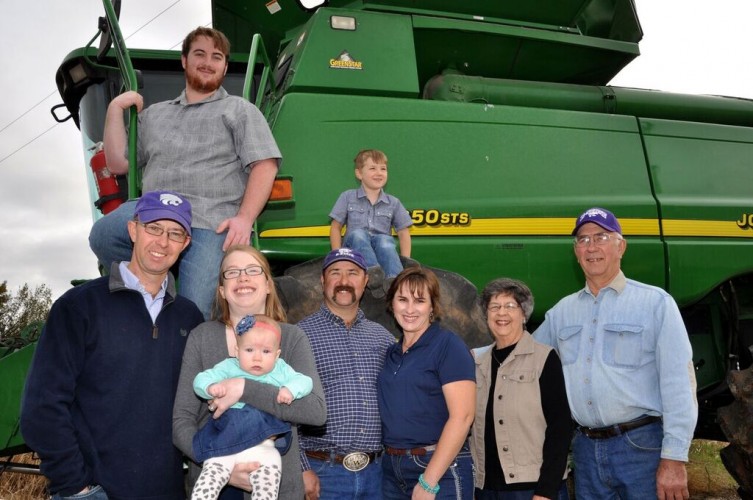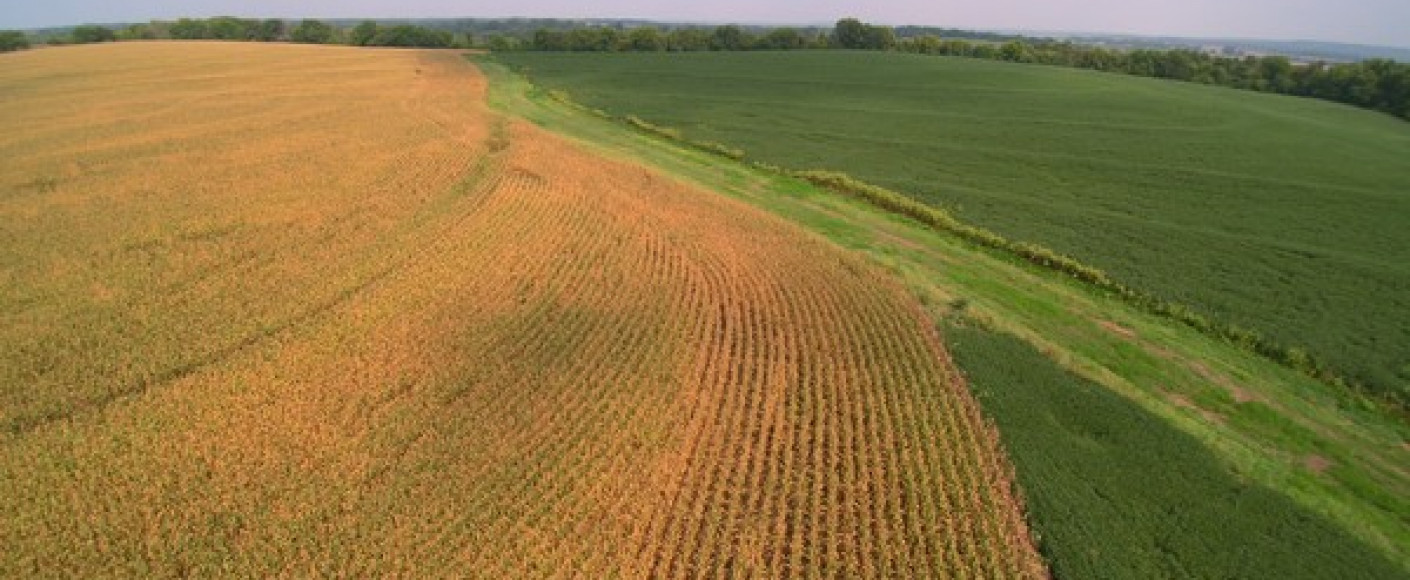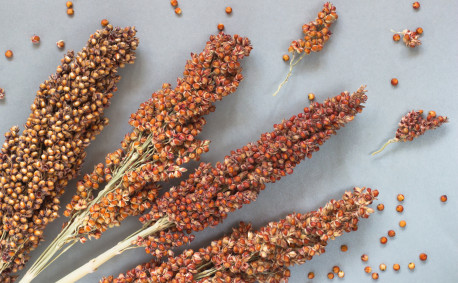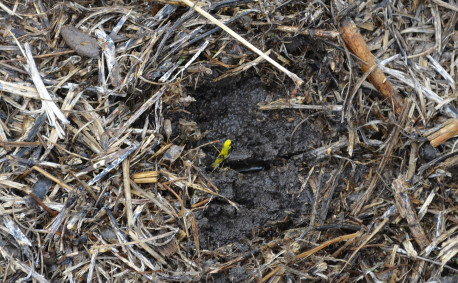Is Farming Sustainable?
The Winsor family began farming a patch of land in Northeast Kansas in the 1940s and has continued to care for the land since. It all began with Andy Winsor’s grandparents and grew from there. Growing up, Andy helped with farm chores—from planting to harvesting grain and everything in between. When he graduated with a degree in Agronomy, the study of soil management and field crops, he joined the family farm full time. Today Andy and his wife LaVell farm alongside Andy’s parents and his brother’s family. They grow soybeans, corn, wheat, and hay on 4,000 acres of land, and have a herd of beef cattle.
To have operated and provided for their growing family for more than 70 years, the Winsors have adopted conservation measures to protect their land and the environment. On their 4,000 acres of land, every field is unique and requires different management practices to protect and sustain the quality of land. 
Sustainable Farming Practices
Crop rotation is a simple way to help improve the soil quality as well as manage weeds and other pests that harm the plant. The Winsors have a corn and soybean rotation, so one year they plant corn and the next year they plant soybeans. All plants need nutrients to grow—that’s why a lot of us use fertilizer in our gardens—and field crops are no different. The soil needs to have good nitrogen levels for corn to be productive and have a good yield. (Picture robust, bright kernels on the cob.) Rather than simply applying a nitrogen fertilizer, farmers can replenish the soil’s nitrogen levels by planting soybeans the previous year. Then the following year the corn can use that nitrogen.
Another practice the Winsors use is cover crops. Cover crops are planted in the fall and grow quickly before winter sets in, which helps to cover the soil. This does a number of things to improve the soil quality:
- It prevents the soil from being exposed to the elements
- It acts as a weed suppressant
- It helps hold nutrients in the soil
- It helps capture more moisture from rain and snow into the soil
In some cases, cattle can also graze these cover crops during the winter when the natural grasses are less abundant.
The Winsors also practice contour farming. When they till the land, they till perpendicular to the slope instead of up and down. This helps minimize soil erosion and decreases the speed of water runoff. They also work to decrease the amount of tillage they do have to do.
The Winsors also use several water conservation practices. They just recently implemented a subsurface drip irrigation system, which runs underground so the water goes directly where the plants need it: at the roots! This reduces water usage on the field significantly. Waterways—grassed pathways that slow water runoff and lead the water to a non-erosive area—are another way the Winsors conserve water.
In order to preserve the habitat, the Winsor family also implements practices that preserve wetlands.
Sharing Their Story
The family knows that the public is concerned about environmentally-friendly farming practices and that a lot of people have questions about where their food comes from and how it will impact the land. LaVell reaches out directly to consumers on her personal blog, www.growingfortomorrow.wordpress.com.
The Winsors also reach out to others. They recently hosted a group of dieticians and bloggers on a Farm Food Tour to share a meal and talk about their farm.
Farmers understand that the environment needs to be protected, and the Winsor family is no exception. They are a perfect example of many farmers who use various measures to protect the land.




